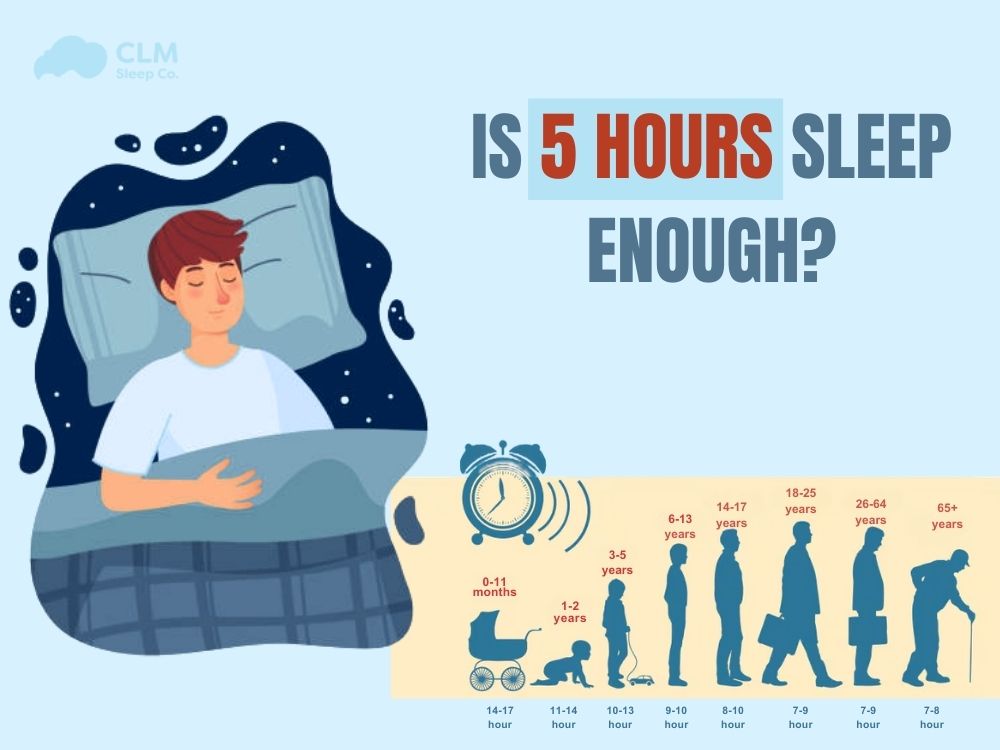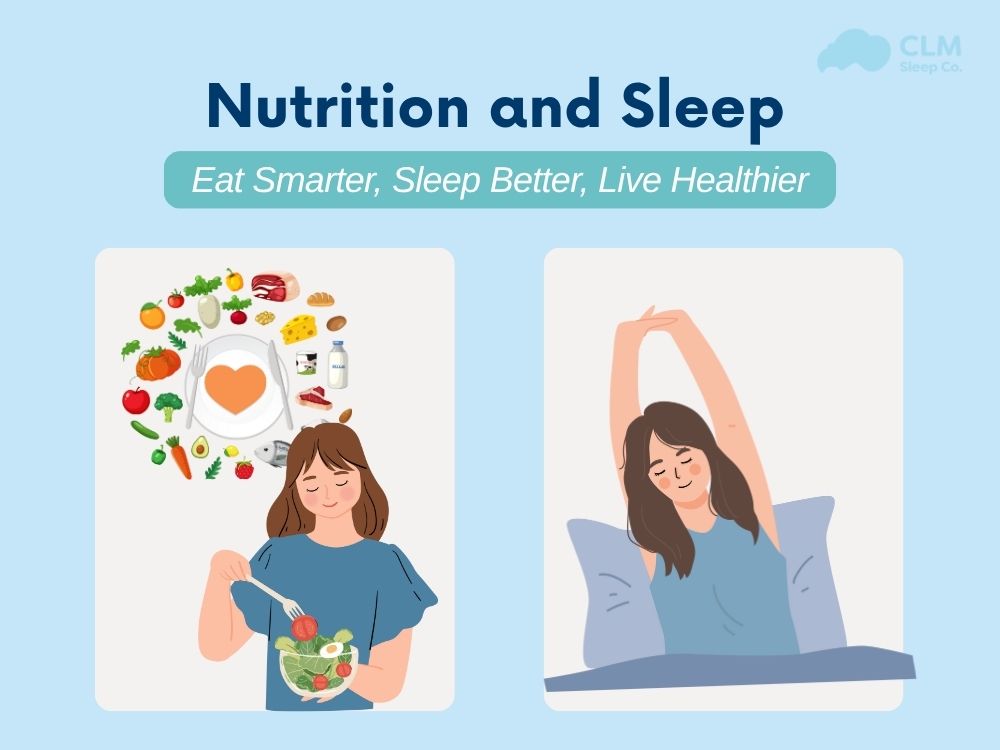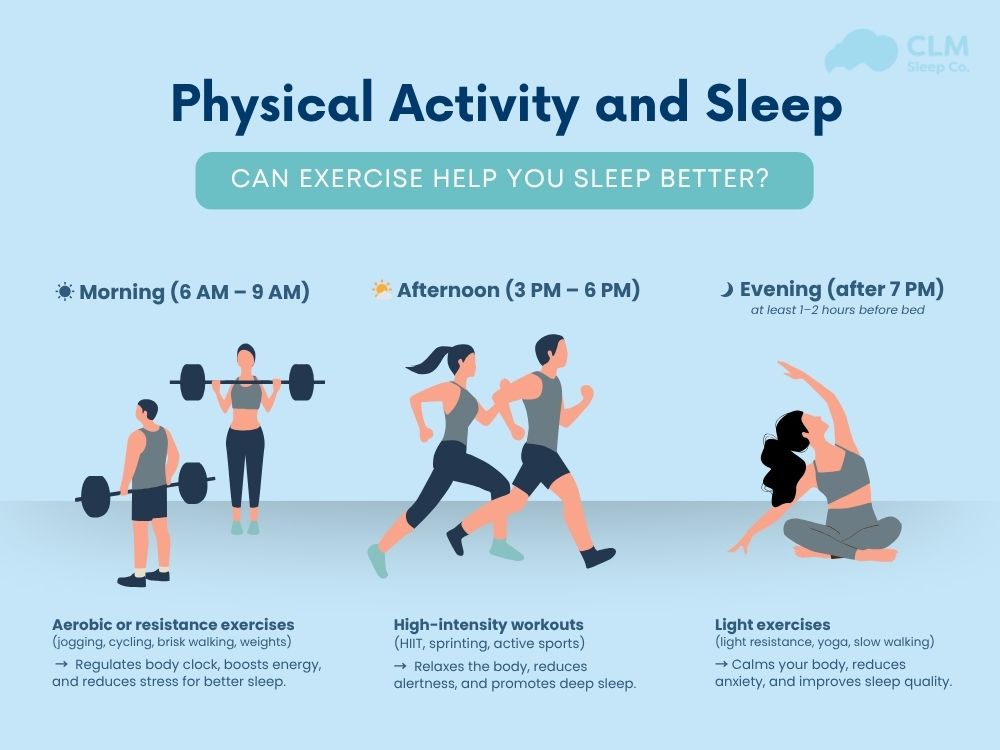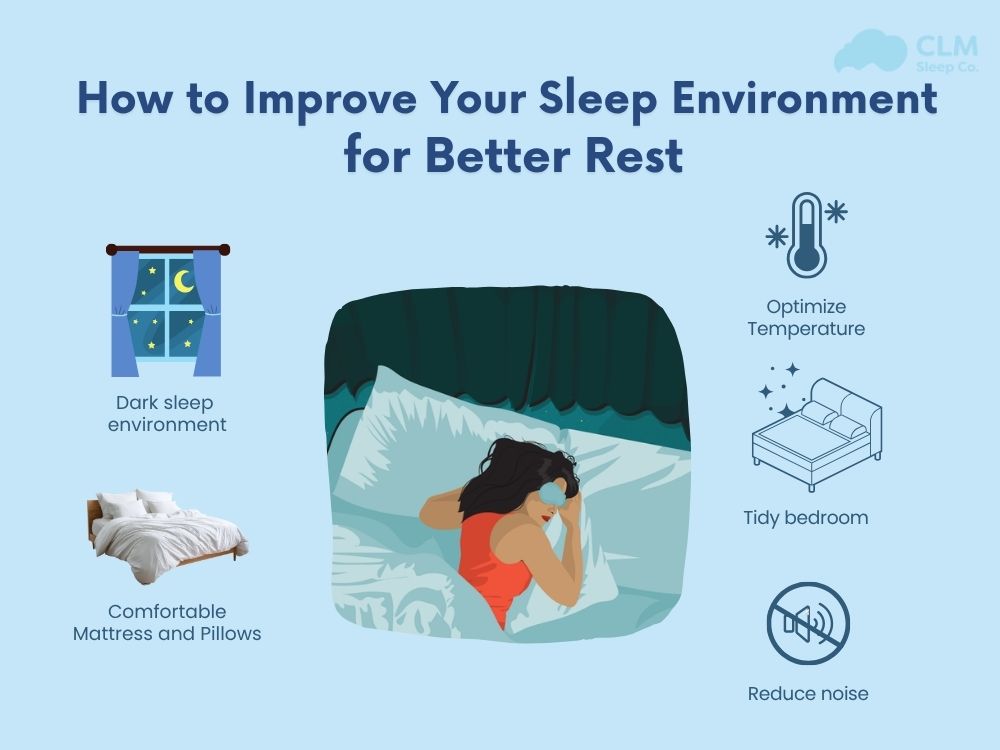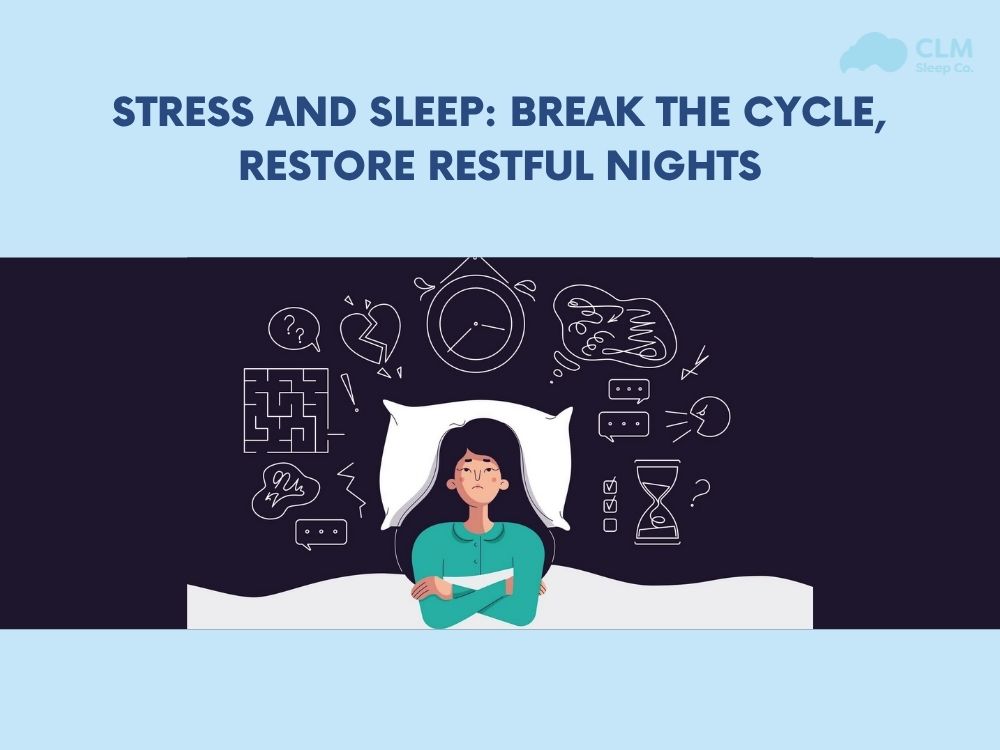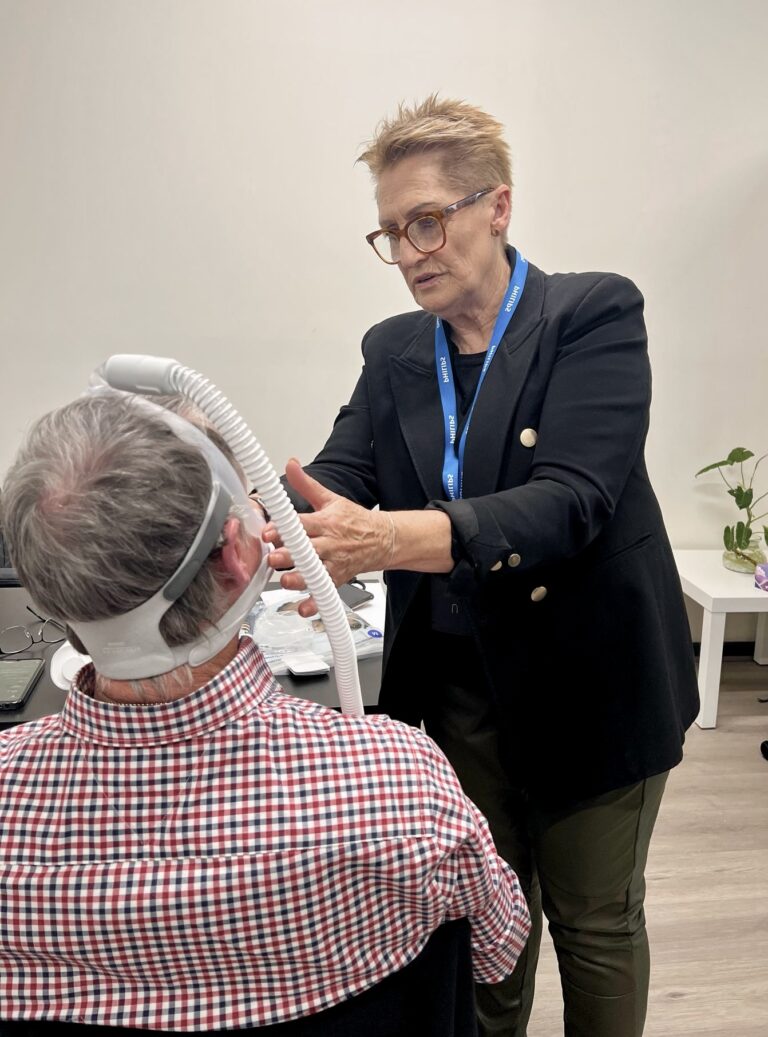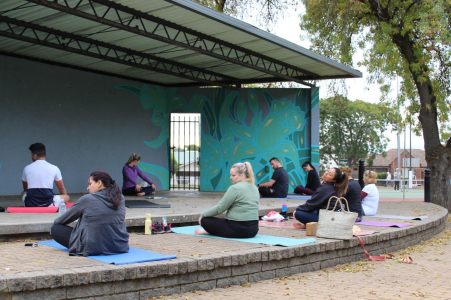Many busy people wonder if 5 hours of sleep is enough to stay productive. While it may feel manageable in the short term, research shows that consistently sleeping only 5 hours can impact focus, mood, and overall health. In this guide, we’ll explore the real effects of short sleep, who might adapt better, and updated recommendations for healthier habits in 2025. For more expert advice, see the latest insights from CLM Sleep.
Do you think 5 hours of sleep is enough?
Today, some people believe that adults only need about 5 hours of sleep per day. They often cut back on sleep to work, study, or earn money. However, most medical recommendations suggest that adults need to sleep for 7 to 9 hours each night. This time allows the body to go through 4-5 sleep cycles, with deep sleep aiding physical recovery and REM sleep assisting in mental, memory, and emotional restoration.
Therefore, sleeping 5 hours each night is not enough to maintain health and work productivity. In the long run, this habit also increases the risk of cardiovascular disease, diabetes, obesity, memory impairment, weakened immune function, and shortened lifespan. There are a few people in the world who carry rare gene mutations (DEC2 or ADRB1) that allow them to function normally with 4–6 hours of sleep, but this percentage is extremely rare (<1% of the population). Many people might think they’ve adapted to sleeping 5 hours, but in reality, their bodies are still being negatively impacted every day. Therefore, getting enough sleep is essential for long-term health and minimizing the risk of serious diseases caused by sleep deprivation.
Read more: How Many Hours of Sleep Do We Really Need?
What Happens When You Only Sleep 5 Hours a Night?
Sleep affects our physical health, mental sharpness, and general wellness. Few people are able to get by with a few short nights while having as little as 5 hours of sleep. The question is, to what extent does physical and mental health affect your body when you sleep five hours a night?
Short-term effects:
- Feeling tired during the day
- Lesser focus
- Reduced alertness and slower reaction times
- Moderate memory problems
- Heightened irritability and mood swings
- Problems dealing with people
Long-term health impacts:
- Elevated risk of heart disease, type 2 diabetes, and obesity
- Weakened immune system, making you more prone to illness
- Higher likelihood of developing chronic sleep disorders
Mental health and cognitive function:
- Greater vulnerability to anxiety, stress, and depression
- Memory lapses and impaired problem-solving skills
- Decline in creativity, decision-making, and overall brain performance
Read more: Why Do We Need Sleep?
Recommended Sleep Duration by Age
Everyone needs sleep, but the quantity differs from one person to another and varies dramatically with age. From infants to the elderly, the amount of sleep necessary at different stages of life is a function of the crucial amount of brain and physical development as well as emotional health required at each stage. Recognizing the sleep requirements of one’s body goes a long way in nursing ease, memory, and overall health.
Here are the sleep recommendations shared by the National Sleep Foundation:
- Newborns (0–3 months): 14–17 hours a day to support rapid growth and brain development.
- Infants (4–11 months): 12–15 hours, including naps.
- Toddlers (1–2 years): 11–14 hours for bone growth and strong immunity.
- Preschoolers (3–5 years): 10–13 hours, essential for healthy routines and learning.
- School-age children (6–13 years): 9–11 hours to boost focus and academic performance.
- Teenagers (14–17 years): 8–10 hours, though many often fall short due to school demands.
- Young adults (18–25 years): 7–9 hours to maintain memory, productivity, and physical health.
- Adults (26–64 years): 7–9 hours, but this group is most prone to sleep deprivation because of work and stress.
- Older adults (65+): 7–8 hours, where sleep quality matters more than quantity.
These numbers make it clear: as we age, the total hours of sleep decrease, but high-quality, consistent rest remains crucial for health at every stage of life.
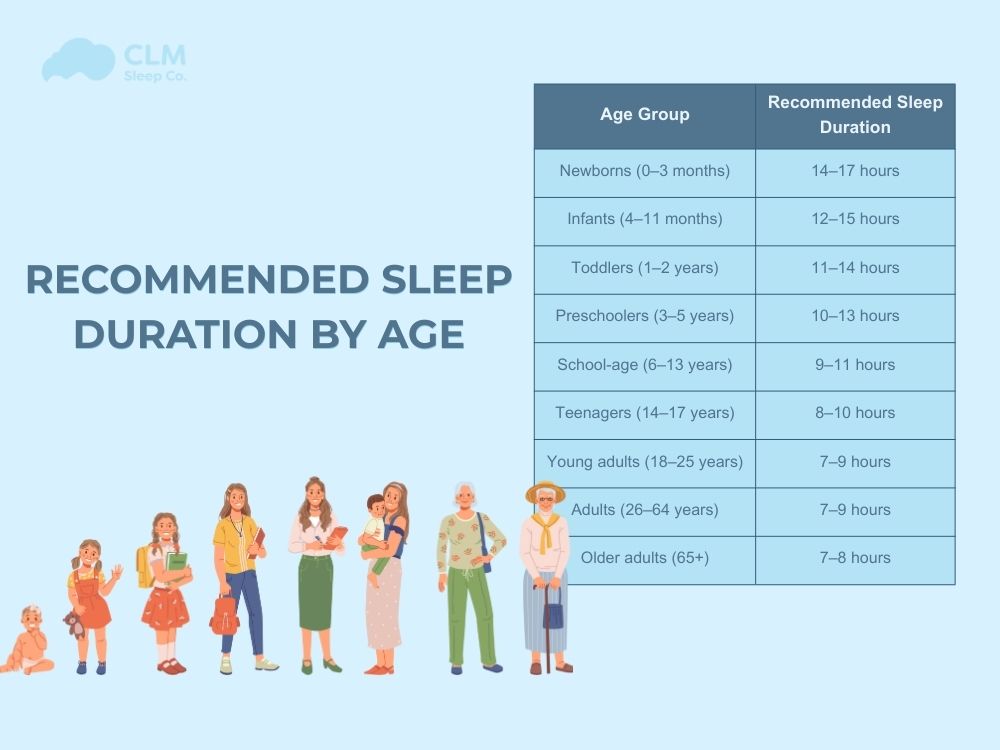
Are There People Who Function Well in 5 Hours?
We all know people who say they only need five hours of sleep, but it turns out this is almost never the case. Scientists have discovered a genetic flaw called DEC2 that helps a very small subset of the global population, less than one percent, operate without any health issues on 4 to 6 hours of sleep. People like this are referred to as “natural short sleepers.” Even though natural short sleeping can be determined by testing for specific genetics, natural short sleeping isn’t common. In fact, a large share of the population who believe they are short sleepers are actually just unknowingly undergoing long-term sleep deprivation. Even though the body can adapt to less sleep for a period of time, the consequences to the individual’s long-term health, mood, and cognitive function are severe and negative.
FAQs
Can naps make up for sleeping only 5 hours?
Do naps boost energy temporarily but not replace a good night of balanced sleep? With only 5 hours of sleep, a person misses critical stages of sleep, including REM and slow-wave sleep, which are important for memory, mood, and overall health. A 20- to 30-minute nap may enhance concentration and alertness throughout the day, but this should only be considered an adjunct rather than a replacement. The best remedy is to aim for 7–9 consistent, high-quality hours of sleep for optimal health.
How to adjust sleep schedule gradually?
Gradually adjusting one’s sleep schedule is the most efficient way to reprogram your body clock. Begin by pushing your bedtime and wake-up time either 15–30 minutes even earlier or later every 2–4 days, depending on the target adjustment. A consistent routine will help maintain and retrain this new sleep timetable by forcing your clock into aligning with it, possibly sparing you the need to map out other strategies. Diminish any TV watching before bed, keep the habit for overall good health, decrease caffeine use by mid-afternoon, and bask in bits of morning sunlight to hasten any physical changes necessary in your newfound schedule. Within time, these changes need your body to realign itself to yet more organic states of sleep.
Is it better to sleep 5 hours straight or break it into chunks?
Sleeping 5 hours straight is generally better than breaking it into smaller chunks, because continuous sleep allows your body to progress through the natural cycles of light, deep, and REM sleep. When you split sleep into segments, you interrupt these stages, which reduces rest quality and leaves you feeling less refreshed. However, if your schedule makes consolidated sleep impossible, supplementing with a short nap may provide some relief. Still, experts agree that aiming for 7–9 hours of uninterrupted sleep is far more effective for long-term health and performance.
Conclusion
While some people may wonder if 5 hours of sleep is enough, science shows that consistent short sleep can negatively impact health, focus, and mood. Naps and adjustments may help temporarily, but they cannot replace the benefits of full rest. Building healthy sleep habits and aiming for 7–9 hours remains the most reliable way to support your body and mind. Prioritizing quality sleep is an investment in your productivity, well-being, and overall longevity.
